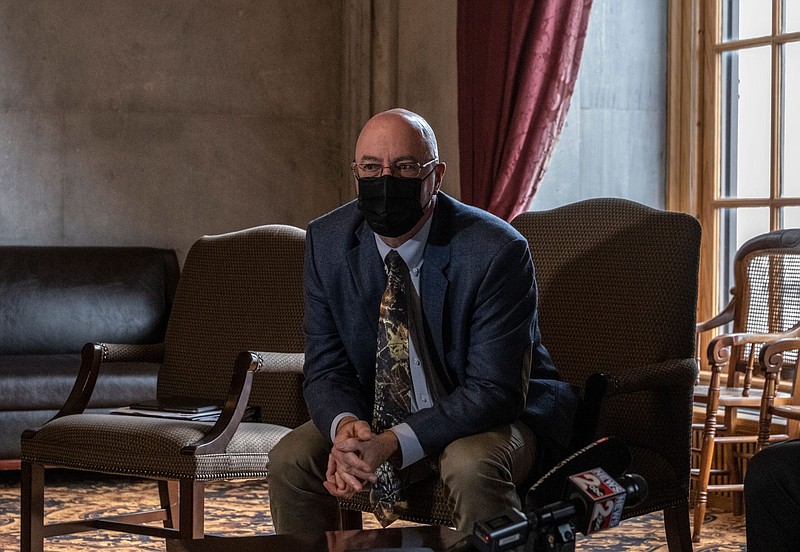Thirty states and the District of Columbia have implemented electronic systems for law enforcement to track rape kits - with 24 states and D.C. also granting victims the right to know the status of the kits.
A bill introduced by Rep. Bob Freeman, D-Nashville, and Sen. Mike Bell, R-Riceville, would direct law enforcement agencies, hospitals and labs in Tennessee to participate in the tracking system.
Every rape kit - which contains DNA and other evidence collected through forensic exams of victims performed in hospitals - would receive a tracking number given to victims and law enforcement.
"With technology today, you can track your purchase on Amazon and know where it is at all times," said Michelle Kuiper, a sexual assault survivor and advocate with the Joyful Heart Foundation, which has fought to eliminate long backlogs in testing of rape kits across the nation.
"All we are asking is the victims would be allowed to do the same," Kuiper told lawmakers Wednesday in a House criminal justice subcommittee hearing.
In 2014, there were 12,000 untested rape kits discovered in Memphis, which became embroiled in a federal lawsuit over evidence mishandling, including dumping kits in a landfill. Tennessee is not alone. Across the nation law enforcement agencies have come under scrutiny for failing to test and track rape evidence that can help identify, arrest and prosecute perpetrators of sexual violence.
David Rausch, director of the Tennessee Bureau of Investigation, speaking in a state budget meeting in December, said the backlog in untested kits in Memphis and around the state had nearly been resolved.
The proposed legislation would add a layer of accountability to the process of preserving evidence from sexual assaults going forward. The measure would also speed up the process for processing the evidence once a victim has submitted to an exam at a local hospital.
The measure would require a law enforcement agency to pick up sexual assault evidence collection from a hospital within 48 hours of being notified. It would require the TBI to create a tracking system for each kit. Hospitals, law enforcement and the state's crime lab would be responsible for entering information about the status of the sexual assault evidence into that system.
The legislation would also extend the time period in which evidence must be preserved from three years to ten years. And it would require law enforcement agencies to notify victims if there is any match to a federal DNA database of arrested and convicted individuals.
Jordan Kimmel told lawmakers Wednesday that she had been sexually assaulted in her first year of college nearly three years ago. She did not say whether her case resulted in a prosecution.
"Being a rape victim while enrolled in college is incredibly difficult, so I hope to inspire you all to think of what Tennessee can be for the next generation of sexual violence survivors like me," she said.
Kimmel's rape evidence was lost for several months. It has since been found, but Kimmel said that current state law means the kit - and the evidence it holds - could be destroyed by the Sumner County law enforcement in less than six months when it reaches the three-year mandatory hold for such evidence.
Read more at TennesseeLookout.com.
